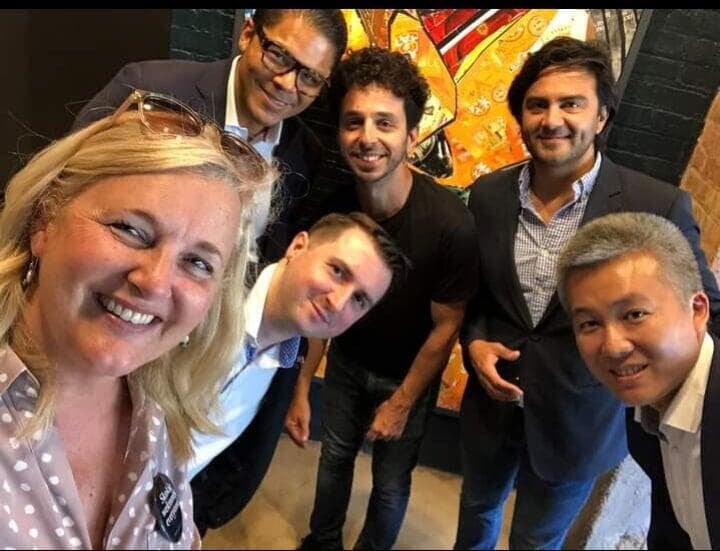

What is "Business Model Innovation"?
Business model innovation (BMI) pertains to the process of reconfiguring a company's core structures to develop new value propositions, attract additional customers, or enhance operational efficiency. This process encompasses modifications in how a business delivers value, generates revenue, and differentiates itself within the market. It may involve adjustments to products, services, customer relationships, and even supply chains to effectively respond to market demands or disruptions, such as digital transformation or economic shifts.
Examples of Business Model Innovation (BMI) include:
1. Transitioning from product sales to service provision (e.g., offering software as a service rather than one-time licenses).
2. Establishing new ecosystems (e.g., platform business models such as Uber or Airbnb).
3. Adopting subscription models in place of one-time purchases.
To gain a deeper understanding of this topic, we partnered with Birgit Linnamäe, a PhD researcher at the Estonian Business School. Her work examines the influence of business model innovation on international value chains, highlighting the essential need to adapt business models to remain competitive in global markets. She remarked:
“The examples of Business Model Innovation (BMI) often seem to focus predominantly on digitalization, IT, and the service economy. However, in the manufacturing sector—which accounts for approximately 16% of the world’s gross domestic product (World Manufacturing Foundation) and employs around 23% of the global workforce (Worldmetrics)—the impact of BMI may be even more profound.”
Business model innovation (BMI) is crucial as it allows a company to adapt to evolving market conditions, unlock new revenue streams, and sustain competitiveness. In summary, BMI is vital for companies aiming for long-term growth, resilience, and competitiveness in today's dynamic business environment. Birgit contributed an insightful observation regarding entrepreneurs’ responses during discussions about business models. She noted:
“I have also observed that when entrepreneurs discuss business model innovation and innovation in general, they often view it as requiring significant investment over a long period, which is true in many cases. However, there are other examples, especially among small and medium-sized enterprises (SMEs), where even small improvements, such as managing business processes more efficiently or adding an element of smart technology or digitalization, can make a noticeable difference. For instance, moving to a paperless office or digitally tracking employees' work time may require smaller initial investments but can yield significant gains.
Manufacturing industries have significant potential to reshape their value propositions, improve operational efficiencies, and tap into new markets through innovation. Yet SMEs often lack the energy or openness to explore new pathways. From my recent interviews and collaborations, I've found that many top managers feel isolated and lack sparring partners with whom they can discuss their ambitions and strategies.
Another critical issue is the overwhelming busyness and the challenge of carving out time to gain a broader, external perspective on one's own business. It doesn’t have to be this way. Managers can engage with strategy consultants and scientists to evaluate their ideas, ask the right questions, and gain fresh perspectives. While entrepreneurs are the best decision-makers for their businesses, there are more effective ways to inspire and bring structured methodologies into business processes. This holds true especially when companies certify their processes and products. Through certification, companies gain an external, expert evaluation of their entire operation, from processes to value creation for stakeholders such as clients, employees, and owners."

What is "International Value Chain?"
International value chains (or global value chains, GVCs) embrace the entire spectrum of activities required to take a product from conception to delivery to end users. These activities are frequently distributed across various countries, with distinct regions specializing in specific stages, including R\&D, manufacturing, and distribution. Innovation within GVCs may involve re-evaluating the locations and methods of different value-adding processes to improve efficiency or minimize costs, particularly in response to global disruptions like the COVID-19 pandemic.
(BCG Global) (Stanford Graduate School of Business).
Components of International Value Chains:
1. Global Sourcing: Acquiring materials or components from suppliers across the globe.
2. Cross-Border Production: Various production stages take place in different countries, such as design in the U.S., manufacturing in China, and assembly in Mexico.
3. Distribution Networks: international logistics systems that facilitate the movement of products through multiple countries before reaching the end customer.
4. After-Sales Services: Provision of international customer service, support, or maintenance.

The Relationship between Business Model Innovation and International Value Chains
Business model innovation frequently leverages international value chains to optimize costs, access new markets, and enhance operational efficiencies. For instance:
● A company may innovate its business model by utilizing IVCs to outsource production to lower-cost regions while concentrating on core competencies such as marketing and product development in higher-cost areas.
● Business model innovation can empower firms to provide digital platforms that connect globally dispersed suppliers and customers, facilitating seamless international operations.
In conclusion, the synergy between business model innovation and international value chains enables companies to maintain competitiveness in an increasingly globalized landscape by offering flexibility, scalability, and cost efficiencies.
In conclusion, the synergy between business model innovation and international value chains enables companies to maintain competitiveness in an increasingly globalized landscape by offering flexibility, scalability, and cost efficiencies.
She also provided her expert insights on the relationship between Business Model Innovation and International Value Chains.
“BMI is often viewed as separate from value chains, but this distinction can be misleading. When companies adopt new business strategies in unexplored markets or segments, they inherently incorporate elements of BMI as a method for designing the value creation processes. Whether optimizing supply chains, rethinking production, or integrating new technologies, value chain innovation is intrinsically linked to business model transformation.
In conclusion, I vote for openness to new ways of doing business—embracing efficiencies gained from smart technology integration, digitalization across shared value chains, and fostering collaboration through alliances and networks. It is only together with people that changes can be planned and implemented. The institutional opportunities are often underutilized, particularly in countries with more individualistic cultures, such as those in Northern Europe and the Baltic states (Estonia, Latvia, and Lithuania). By leveraging collective intelligence and collaborative approaches, companies can unlock new value and enhance their competitiveness.”

About Birgit Linnamäe
With over 25 years of experience in top management and strategy consulting, Birgit has developed deep expertise in international value chains and business growth. Holding a master’s degree (cum laude) in economics and strategic management, Birgit is currently a PhD researcher at the Estonian Business School, focusing on business model innovation and global value chains.
Birgit empowers companies of all sizes and industries to succeed in global markets by combining a strategic view and a resilience mindset with proficiency in several languages. This approach enables effective cross-cultural communication and expansion through alliances and networks. At the core of Birgit's consulting practice is the construction of resilient, export-driven business models for goods (manufacturing), services, digitalization, and the public sector.
Birgit values human relationships and offers extensive expertise in leadership, strategy consulting, international value chains, and business mentoring. Ongoing PhD research further enriches Birgit’s strategic guidance, exploring the intricate dynamics of global trade, institutions, and industrial and social innovation.
Visit her website at https://www.birgitlinnamae.com/en to learn more about her and her expertise.





